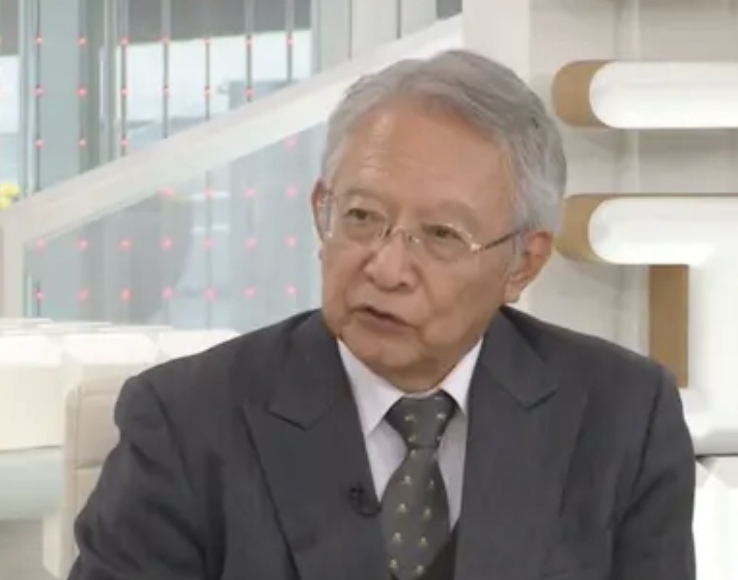
もし逮捕されたら 冤罪当事者語る
✍️記事要約
大川原化工機(おおかわらかこうき)の冤罪事件の当事者である、大川原正明社長が実体験からまとめた“人質司法”の対応策について語った。
人質司法とは、黙秘や否認供述する被疑者が長期間拘束され、自白強要をさせられるといった日本の司法制度の問題点を指す。今、世間を震撼させている「大川原化工機(おおかわはらかこうき)」の冤罪事件で、その理不尽さが浮き彫りとなった。
事件の経緯は、大川原化工機の主力製品であるスプレードライヤ(噴霧乾燥機)が警視庁公安部から「生物兵器が製造可能な機械」と指摘され、不正に輸出したとして、外為法違反の嫌疑をかけられた。その結果、社長や取締役など3人が無実の罪で逮捕、起訴され、11か月にわたって不当に長期拘束された。のちに起訴が取り消された冤罪事件。
では、もし“人質司法”に巻き込まれたらどうすべきか。大川原社長は「信頼できる弁護士に相談する」「任意の事情聴取であっても録音を行う」「曖昧な答えは避ける」「逮捕後は犯罪者と決めつけられると覚悟の上、完全黙秘を行う」そして、「警察からの仲間の話や専門家の話はほとんどが嘘と心得る」と対応策を紹介。
それを受けて、千原ジュニアは「“任意の事情聴取で録音”というのはされていなかったのか?」と問いかけると、大川原社長は「私はしなかったが、社員の何名かはしている。別場所に置くようにとか、電源は切るようにと言われるが、携帯電話を2つ持って行ったり、携帯電話を行く前から録音しておけばいいわけで。それが見つかったとしても、罰になったり犯罪になったりはしない、ということは後で知った」と説明した。
また、「曖昧な答えは避ける」という対応策について、脚本家で演出家のマンボウやしろが「『これはわかりません』と答える分には大丈夫なのか」と質問すると、大川原化工機事件を担当する高田弁護士が「事件にもよるが、『わからない』というのが明らかに客観的な状況から矛盾するようだと、そこからついてこられる、ガンガン責められる」と解説した。その為、逮捕されたら犯罪者と決めつけられると考え「完全黙秘」するしかないのだという。
元大阪地検検事の亀井正貴弁護士は、「自分でやってない場合に言いたくなる。だけど大事なのは、自分のことは自分では判断できない。自分のことは頭の中でしかないので、言ったこと自体、勘違いもあり、それが(相手にとって)有利に利用されてしまうことがある」と黙秘することの重要性を語った。
「勾留中に大事なのは、金持ち(優秀な弁護士を雇う経済力がある)ならいいが、金持ちじゃないならメンタル。どういう意味かというと、まず一旦、これまで蓄積したものは全てないものと考える。それから、すぐリセットする。何かあってもすぐリセットして、目の前のことだけに集中する。この事件のことについて。だから明日のことも何も考えない。そして勾留中は、動物のように生きる。原始的人間として生ききる、これが大事。将来のことは出たときに考えればよい」(亀井弁護士)
■英訳
The president of Okawara Chemical Machinery Co., Ltd. spoke about strategies for dealing with "hostage justice," based on his own experiences.
"Hostage justice" refers to the problem in Japan's judicial system where suspects who remain silent or deny allegations are detained for extended periods and coerced into confessing. This injustice was highlighted in the Okawara Chemical Machinery Co., Ltd. false accusation case that is currently shaking society.
The sequence of events in the case involved the company's main product, the spray dryer, being pointed out by the Tokyo Metropolitan Police Department Public Security Bureau as a machine capable of manufacturing biological weapons and being illegally exported, leading to suspicions of violations of the Foreign Exchange and Foreign Trade Act. As a result, the president and two directors were arrested and prosecuted for a false crime, enduring unjustifiably long-term detention for 11 months. The false accusation case was later dropped.
So, what should one do if caught up in "hostage justice"? The president suggested consulting a trustworthy lawyer, recording even voluntary interrogations, avoiding vague answers, mentally preparing to remain completely silent upon arrest, and recognizing that most information from the police or experts is likely to be lies.
In response to these strategies, the comedian Junia Chihara asked if recordings were not made during "voluntary interrogations," to which the president explained that while he didn't, some employees did. They were advised to place the recording device elsewhere, turn off its power, or even start recording on their phones before going, with the understanding that even if discovered, it wouldn't be punished or considered a crime.
Regarding the strategy of avoiding vague answers, the scriptwriter and director Mambo Yashiro questioned whether it was okay to answer, "I don't know." The lawyer Takada, who handled the Okawara Chemical Machinery case, explained that while it depends on the situation, if saying "I don't know" clearly contradicts objective circumstances, one could be pressed further and harshly interrogated from there. Hence, it's essential to mentally prepare to remain completely silent upon arrest, as one is immediately presumed guilty.
The former Osaka District Public Prosecutor, Lawyer Masataka Kamei, emphasized the importance of remaining silent, stating that although one might feel compelled to speak if innocent, one cannot judge one's own situation objectively. Words spoken might be misunderstood or misused by the other party.
"During detention, what's important is, if you're wealthy (having the economic power to hire excellent lawyers), that's good, but if you're not wealthy, it's mental. What I mean is, first, consider everything you've accumulated so far as nothing. Then, reset immediately. Reset everything even if something happens and focus only on what's in front of you. About this case. So don't think about tomorrow. And during detention, live like an animal. Live like a primitive human. This is important. You can think about the future when it comes." (Lawyer Kamei)
◇ ◇ ◇
☘️ヤフコメ❗️ピックアップ☘️
事情聴取は録音しようとすると、警察側が切るよう求めてくるんですね、それは恐ろしい。
この知事が無かったら、自分なら「録音しますね」と宣言するところでした。切ることを強要されると覚えておきます。
そもそも、警察側が必ず録音(リアルタイムにクラウドに送って消去不可)するよう、法改正して欲しい。
冤罪を抑止する一助になると思う。
✅ 人質司法なんて初めて聞きました。大川原事件のような大事ではないにせよ、自分の周りでも痴漢や盗撮とかもあるし会社では不正とかもあるし。こういのって自分には身に覚えのない事なのにある日突然起こりえる事かも知れない。その時にどう構えるか?ってことだと思うけど、メンタルの強さもかなり必要って感じました。
✅ 警察は冤罪も犯すが、防止できる犯罪も未然に防止できない、相談に行ったとしても、あなたのいう相手に対しての根拠は何なんだとなる、つまり話を聞かない、面倒くさいとなる 想像力もない、しかしそれをメモして実際事件が起きたら事務的に機械的に動く、未然には防止しないが起こるであろう犯罪や犯人は分かっているので容易に捕まえやすい、犯人を守備良く逮捕すれば、組織の中で評価され出世できる、すべて自分の人生安定化のために、このようにして犯罪は起こり、被害者は結局救われないのです。
